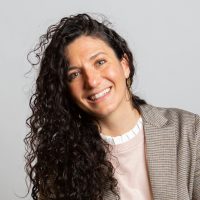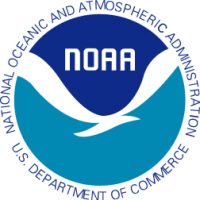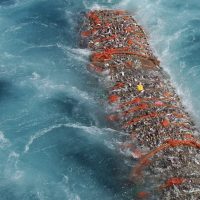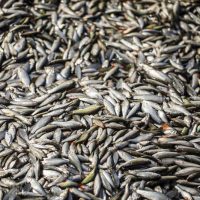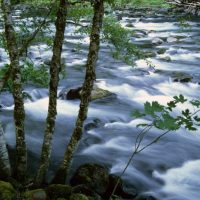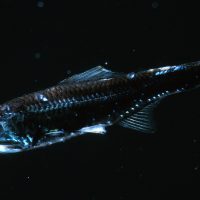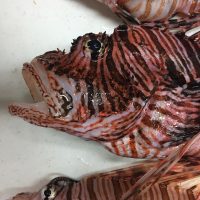Filter Results
Welcoming new faculty, Amy Van Cise
In September 2022, SAFS welcomed Amy Van Cise, a new assistant professor. Amy’s expertise focuses on the evolutionary ecology of marine mammals, which she studies using integrative approaches, including genomics, acoustics, and environmental DNA.
With a diverse career starting off with bachelor’s degrees in Marine Biology and Journalism, Amy’s previous studies, jobs, and research have taken her from New Hampshire and Peru to the Antarctic and Hawai‘i, and now to Washington.
NOAA Hollings Scholarship info session
We are hosting an information session for the NOAA Hollings Scholarship on Wednesday, November 30th at 4:30pm in FSH 207. Freshmen and Sophomores are encouraged to attend. Sophomores already intending to apply for the Hollings this round may benefit from this information session, though we will have a short series of more targeted workshops to help these students with applications starting December 7th.
Read more2022 Eastern Bering Sea Pollock Stock Assessment
The School of Aquatic and Fishery Sciences and the College of the Environment hosted the annual live preview of the most recent assessment of Eastern Bering Sea (EBS) pollock—the target of one of the world’s largest fisheries.
Providing fishery stakeholders and the public the opportunity to learn about the status of the EBS pollock stock and discuss the science underlying the assessment, you can watch the recording of the event below.
A message from the new Director of SAFS
[taps microphone]. Um … Hello? Hello? Is this thing on? Can you hear me SAFS community? [awkward cough].
How should one feel after being asked to serve as the 12th director of the School of Aquatic and Fishery Sciences? Honored to be chosen to promote and enhance the leading program of its kind? Terrified by the responsibility of preserving the School’s rich legacy?
World Fisheries Day 2022
3 billion people rely on fisheries for nutrition and their livelihoods around the world. As the most traded food in the world, fish and the environments they live in are essential.
On World Fisheries Day, we take a look at the different research underway at SAFS involving both oceanic and freshwater fisheries, and explore what sustainability means for the ecosystems that support these fisheries.
Remembering Ken Chew: A Collection of Memories
Ken was a visionary, a valued colleague, and a mentor and friend to many. His fierce advocacy for sustainable aquaculture has had considerable impacts on industry and on state, regional, and federal agencies and policies. Many of these impacts are based on the relationships that Ken developed with state and federal legislators and regulators, seemingly effortlessly. His passion for shellfish and the achievements of his research program still resonate, and his legacy is reflected in and respected by the vibrant community of shellfish researchers and shellfish growers on the west coast and elsewhere in the United States.
Read moreIn memory of Ernie Brannon
SAFS Professor and alumnus Ernest L. (Ernie) Brannon passed away in Moscow, Idaho, on March 10 after a period of declining health. He received his PhD from the UW in 1972 under the supervision of Dr. Lauren “Doc” Donaldson.
Doc had established the College of Fisheries’ experimental salmon and trout hatchery and developed a selective breeding program for salmonids. After Doc’s retirement, Ernie Brannon was hired on the teaching faculty in 1973 and also assumed leadership of the experimental hatchery.
Fish, Forests and Fungi
SAFS graduate student Anne Polyakov spent a summer with the UW Alaska Salmon Program studying ecosystems along three salmon streams, hoping to use the data collected to track how nutrients flow into all parts of the system — into the soil, plants and the role that fungi play in this intricate process.
Read moreStudy Reveals How Ancient Fish Colonized the Deep Sea
The deep sea contains more than 90% of the water in our oceans, but only about a third of all fish species. Scientists have long thought the explanation for this was intuitive — shallow ocean waters are warm and full of resources, making them a prime location for new species to evolve and thrive. But a new University of Washington study led by Elizabeth Miller reports that throughout Earth’s ancient history, there were several periods of time when many fish actually favored the cold, dark, barren waters of the deep sea.
Read moreWhat lies beneath?
In a new documentary, Ocean Invaders, on NOVA PBS, join researchers from the UW School of Aquatic and Fishery Sciences (SAFS) as they uncover the hidden secrets of one of the world’s most invasive species: the lionfish.
Wreaking havoc on ocean reefs, one of the most popular ways of lionfish population control is spear fishing. However, lionfish have started to venture beyond the depth by which it’s possible to spear fish, presenting a new challenge.
